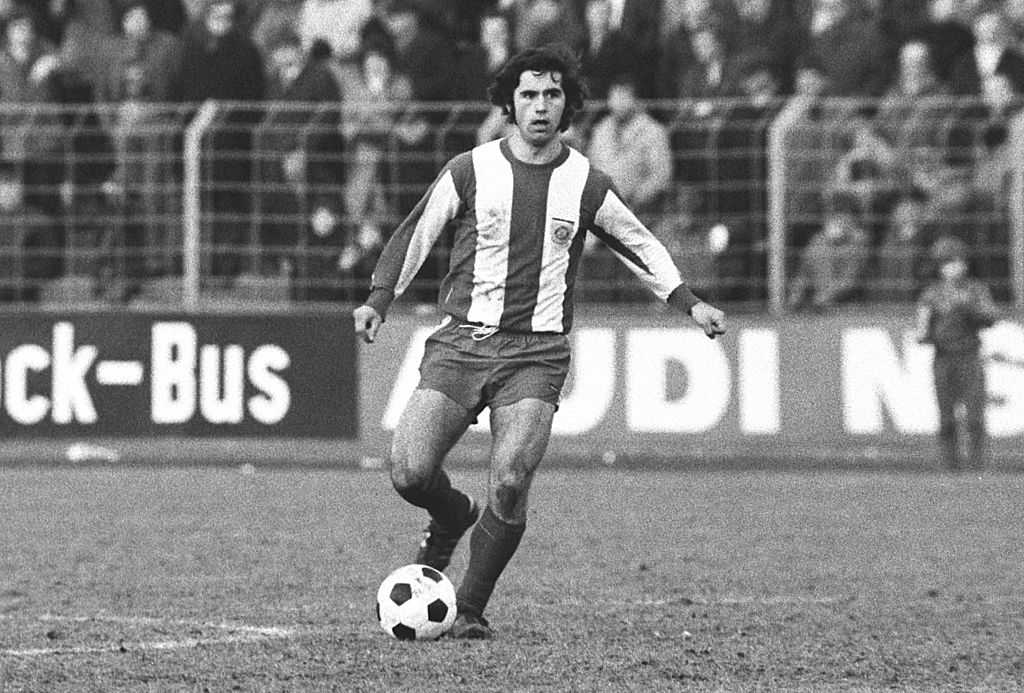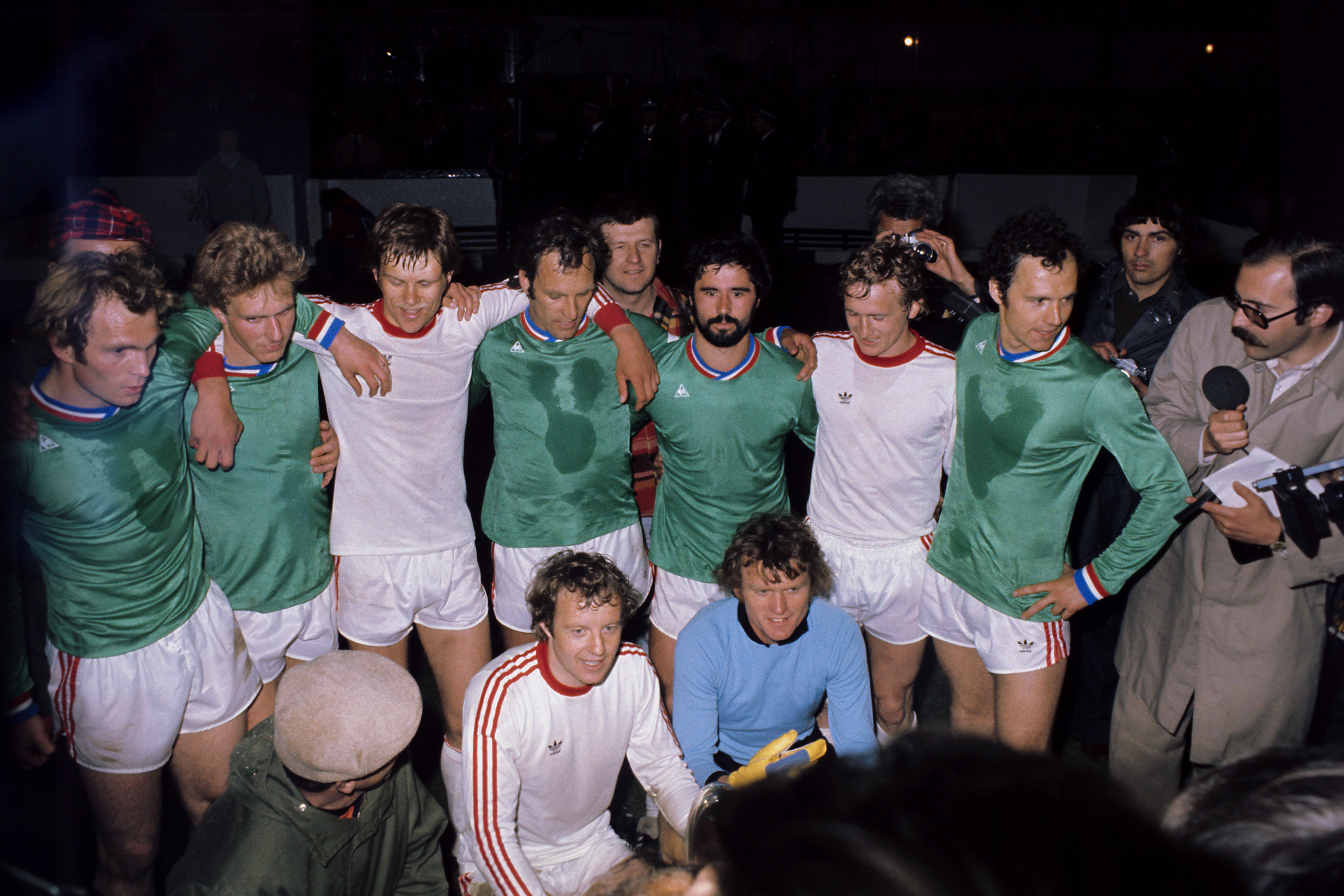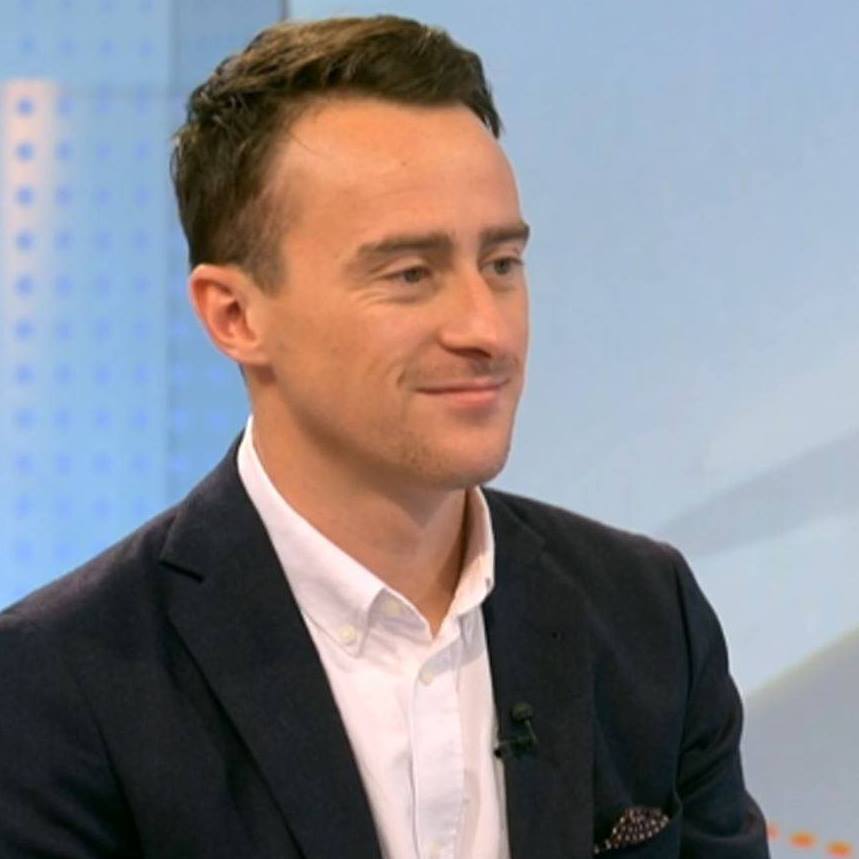From fat jokes to the Ballon d'Or: How Gerd Müller became "Muhammad Ali of the penalty box"
Der Bomber died on Sunday at the age of 75 – to this day, his goalscoring record stands up against the very best

As a young man, Gerd Müller was often mocked for being short and fat. Neither jibe was particularly untrue. The striker said that if he hadn't made it as a footballer, he would probably have worked in insurance. Looking back at early photos of Germany's greatest-ever striker, it's hard not to imagine him lifting leather-bound files as opposed to the Jules Rimet.
But office hours were ultimately not required of Der Bomber, who died on Sunday at the age of 75 after a near six-year battle with Alzheimer’s disease. Instead, he made a mockery of his early critics and amassed a goalscoring record which ensured he will go down in history as one of football’s finest strikers.

“Without his goals, Bayern Munich and German football would not be what they are today,” said another of the club’s greats, and now CEO of the record champions, Karl-Heinz Rummenigge. “He was and still remains the best of all time, the Muhammad Ali of the penalty box.”
Müller scored 365 goals in 427 Bundesliga games for Bayern Munich, playing an integral role in their rise from the German regional leagues to three consecutive European Cup triumphs from 1974.
To put his Bundesliga strike rate into perspective, Robert Lewandowski - widely considered the greatest Bundesliga striker of the modern era - remains 87 goals behind the German despite having scored a scarecely believable 278 times.
Müller averaged 0.85 goals a game across his 427 league appearances; Lewandowski 0.79. When the unstoppable Pole scored 41 goals in a single season last term, it only just broke Müller's benchmark of 40 strikes that had stood for 49 years.
None of this is mentioned to belittle Lewandowski's achievements. Rather it aims to highlight just how sensational Müller was. Anyone who has seen Lewandowski in action will appreciate the goalscoring talent required to compete with such an assassin. You can widen the goalposts beyond Lewandowski and the Bundesliga: Müller scored 54 more league goals for Bayern than Cristiano Ronaldo managed across nine seasons at Real Madrid. He's just shy of a hundred down on Messi's astronomical Barcelona haul.
Get FourFourTwo Newsletter
The best features, fun and footballing quizzes, straight to your inbox every week.

Müller scored 68 goals in 62 games for West Germany, a record which would stand for 40 years until it was finally surpassed by Miroslav Klose, who needed 132 appearances to reach the same figure. When asked, having just broke the all-time scoring record, if he was now Germany's greatest-ever striker, Klose scoffed and called the question "a joke". There was no doubting who the target man believed deserved that status.
Indeed, had Müller played the same number of games as Miroslav Klose, and continued to score at the same rate, he would have finished his international career with 150 goals. Alas, he decided to go out on top, at age of 28.
Müller saved his most important Germany goal for last, netting the winner as West Germany secured the 1974 World Cup with a 2-1 victory over fierce rivals the Netherlands on home soil. His record of 14 World Cup goals stood until 2006.
🔥 Gerd Muller— FIFA World Cup (@FIFAWorldCup) June 16, 2020
Not bad for a player whose stocky and powerful appearance also led to him being nicknamed “short, fat Müller” by his first coach at Bayern Munich, Zlatko Cajkovski.
Muller was born on November 3, 1945 in Nordlingen, Germany, a town notable for its craftsmen and, in particular, weaving, in which he served a junior apprenticeship. While taking his apprenticeship, he started to develop a powerful physique which belied his initial appearance and saw him carve a reputation as a goalscorer of considerable repute with his hometown club.
pic.twitter.com/ZZ4rdGE0M5— FC Bayern English (@FCBayernEN) August 15, 2021
After scoring over 50 goals in 1964, Müller was brought into a rising Bayern squad already underpinned by fellow future superstars Franz Beckenbauer and Sepp Maier.
Together, they would elevate the club to unimaginable heights, with Müller’s goals integral to the club’s four Bundesliga triumphs between 1969 and 1974.
As Bayern rose to the status of European superpower on the back of his clinical penalty box strikes, the striker shed his first derogatory nickname and developed a new one: Der Bomber. He became feared on home soil and across the continent for one simple thing: sticking the ball in the back of the net. No matter how unlikely a scoring chance seemed to crowds, the learnt to accept that Müller would find a way of scoring.
He soon replicated his goalscoring exploits on the international stage, after making his debut for West Germany in 1966.
⚽ One of THE great goalscorers of all time🏅 Golden Boot winner at the 1970 #WorldCup🏆 1974 FIFA World Cup winner— FIFA World Cup (@FIFAWorldCup) November 3, 2019
In 1972, two years after being crowned European footballer of the year - pipping Bobby Moore to the Ballon d’Or - Müller dominated the European Championship in Belgium, scoring twice in his country’s 3-0 final victory over the Soviet Union.
But after claiming the 1974 World Cup for Germany on home soil, he abruptly announced his retirement. Although he continued to succeed with Bayern, he became increasingly unsettled, and in 1979 opted to follow Beckenbauer to the United States, where he signed for the Fort Lauderdale Strikers. He played three seasons in the US and opened a restaurant, before announcing his retirement in 1982.
Müller struggled in his post-football career, and entered a clinic for alcohol dependency after the intervention of one of his World Cup-winning teammates, Uli Hoeness. Shortly before his 70th birthday in 2015, Bayern announced that Müller had been diagnosed with Alzheimer’s disease. He is survived by wife Uschi and daughter Nicole.
Germany has been in mourning since the tragic announcement on Sunday afternoon. Lewandowski paid his respects to Müller after breaking his goalscoring record last season and more tributes can be expected ahead of the Supercup clash between Bayern and Dortmund on Tuesday night.
Subscribe to FourFourTwo today and save over a third on standard price.
NOW READ
TUCHEL Thomas Tuchel: the rise and rage of the Chelsea manager – by those who know him
RETRO How the Premier League breakaway happened: The first season of 1992/93, as told by its heroes
QUIZ Can you name the line-ups that clinched the Premier League title between 1999 and 2020?

Ed is a staff writer at FourFourTwo, working across the magazine and website. A German speaker, he’s been working as a football reporter in Berlin since 2015, predominantly covering the Bundesliga and Germany's national team. Favourite FFT features include an exclusive interview with Jude Bellingham following the youngster’s move to Borussia Dortmund in 2020, a history of the Berlin Derby since the fall of the Wall and a celebration of Kevin Keegan’s playing career.
